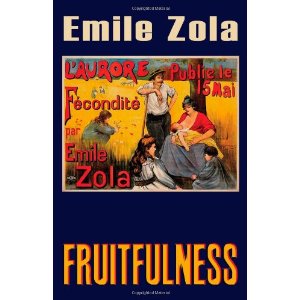Fruitfulness
作者: 未知 标签: 英文短篇小说 进入英语论坛In "Fruitfulness," Emile Zola (1840 - 1902) portrays the triumph of rectitude, the triumph which follows faith in the powers of life, and observance of the law of universal labor. &...
In "Fruitfulness," Emile Zola (1840 - 1902) portrays the triumph of rectitude, the triumph which follows faith in the powers of life, and observance of the law of universal labor. "Fruitfulness" contains charming pictures of homely married life, delightful glimpses of childhood and youth: the first smile, the first step, the first word, followed by the playfulness and the flirtations of boyhood, and the happiness which waits on the espousals of those who truly love. And the punishment of the guilty is awful, and the triumph of the righteous is the greatest that can be conceived. (Ernest A. Vizetelly) --- Zola died before he could finish the fourth and last ("Justice") of this series of four books called "Quatre Ivangiles." "Fruitfulness," "Work" and "Truth" were published between 1899 and 1903. --- "Fruitfulness," says Zola, "creates the home. Thence springs the city. From the idea of citizenship comes that of the fatherland; and love of country, in minds fed by science, leads to the conception of a wider and vaster fatherland, comprising all the peoples of the earth. Of these three stages in the progress of mankind, the fourth still remains to be attained. I have thought then of writing, as it were, a poem in four volumes, in four chants, in which I shall endeavor to sum up the philosophy of all my work. The first of these volumes is Fruitfulness; the second will be called Work; the third, Truth; the last, Justice. In Fruitfulness the hero's name is Matthew. In the next work it will be Luke; in Truth: Mark; and in Justice: John. The children of my brain will, like the four Evangelists preaching the gospel, diffuse the religion of future society, which will be founded on Fruitfulness, Work, Truth, and Justice...."




